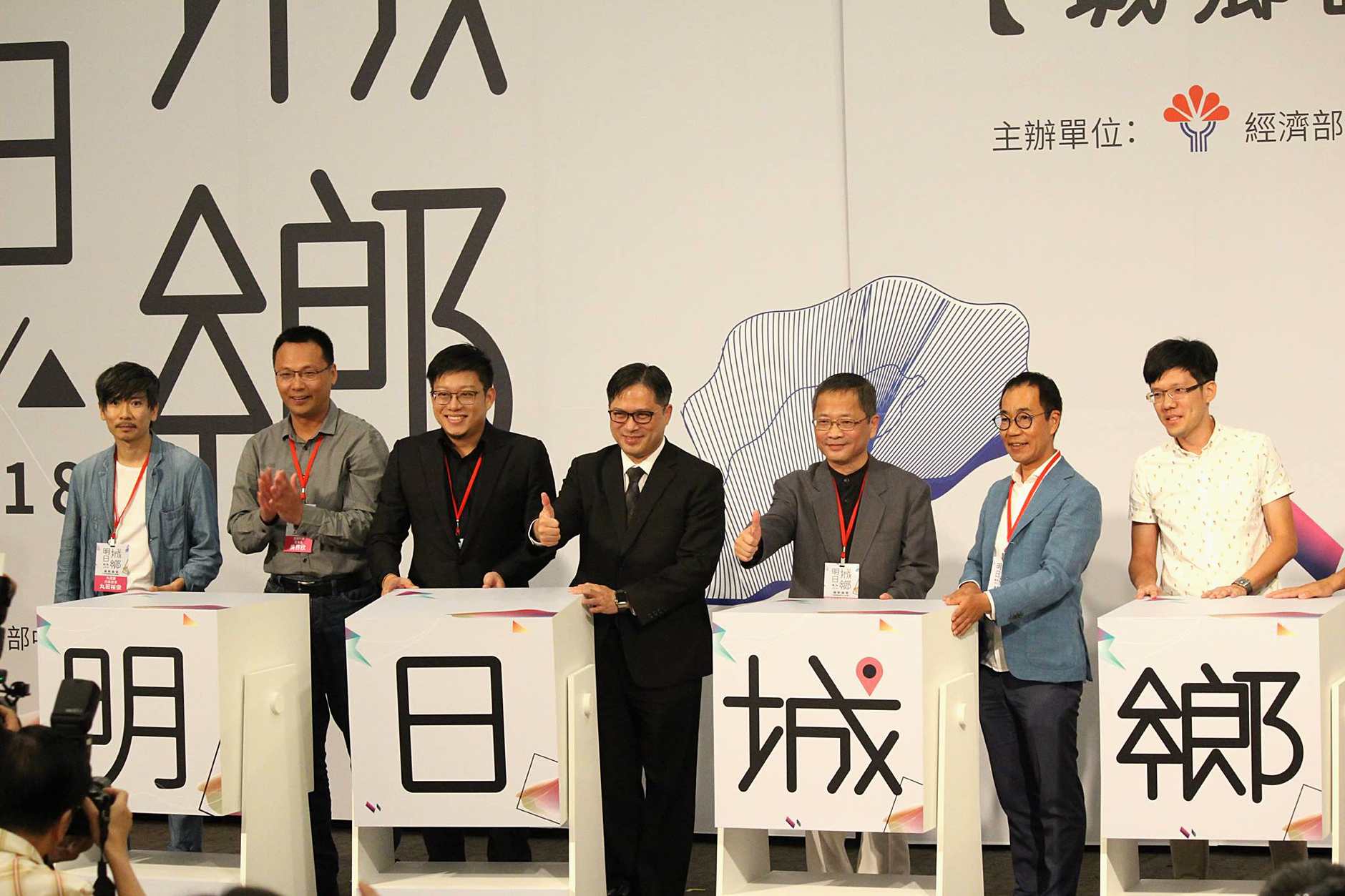The industrial potential comes from the local unique charm! It is very important to "resonate" with local creative professional exchanges in Taiwan and Japan.
Share427 + 1 Tweet EmailShares 427
In the face of the crisis of rural population loss and aging, industries are stationed in local areas and look forward to co-existing with local governments in different ways. The Japanese case of "Ten posts in Liyama" resonates with Shinzo's charm through hotels, while Taiwan's diligent aesthetics rebuilds Shangri-La's old-fashioned paradise and injects vitality with art and culture. Yuantai bamboo art youth return home to revive the bamboo industry, and the unique charm of the place is gradually valued.
The Zhongwei Development Center recently held a forum on urban and rural trends tomorrow, inviting relevant professionals from Taiwan and Japan to share local creative experiences. Wu Mingji, director of the Department of small and medium-sized Enterprises of the Ministry of Economic Affairs, said that there are good mountains and good water, but the population is moving out, and the industry is sluggish. In the future, Taiwan should not only focus on economic growth, but also take into account local creation. Xie Mingda, chairman of Zhongwei, points out that local creativity is different from the thinking of community construction and rural regeneration in the past, and industrial revitalization is a key factor. "Revitalization requires the efforts of several generations, and there is no fixed answer to how to do it. We can draw on Japanese case studies and make continuous efforts through the central, local, and industrial circles."


Lin Jiahong (Photography / Liu Yixin)
Xiangpu: animal husbandry should also convey the value of agriculture
In addition to revitalizing declining industries, how to communicate to the outside world to value its value is also the key. Wu Jiheng, chief operating officer of Xiangpu Industrial Co., Ltd., said that every industry has its own existence value, from pig raising, pig feed, slaughtering and so on. Therefore, the brand "Research good Pig" is established, hoping to make a pork brand that Taiwanese are proud of, enhance the socio-economic status of agricultural producers, and operate animal husbandry in a sustainable manner.
"everyone wants to eat pork, but they don't want pig farms to be built next door. Pig farms can only go to the countryside, and there is no attractive industry, so what exactly will the countryside develop in the future?" Wu points out that Taiwan's animal husbandry industry has shrunk, the consumption of agricultural products has decreased, and imports have increased. Having been in the company for more than a decade, we can see that animal husbandry has no social value and is not taken seriously. However, when employees complain that no one understands the value of agriculture, they should also be held responsible. Without communication, natural values are not understood, and there is no platform in Taiwan to know the stories of these employees.
Wu Jiheng set up a pork slicing factory and an agricultural cultural museum in Yunlin, "providing a communication field in which anyone, no matter curious, skeptical, or untrusting, can enter the field to understand." From the pig's point of view of the world, what kind of life, from artificial conception, piglet birth, listing, etc., but also set up transparent ceilings, so that tourists can clearly see the pork slicing process.
Pig farms are also invested in circular economy, pig manure recycling for composting, power generation, so that the sustainable development of the pig industry, redefine the value of the industry. Wu Jiheng stressed that if the value of production is not seen, competition can only be made at reduced prices, resulting in a decline in food quality and pollution to the environment. "what I want to say is that food is not easy to come by, and there are many people working hard in this food chain. How can there be rural areas without agriculture?"
Share427 + 1 Tweet EmailShares 427
- Prev

There is always light: the fourth year of non-gay campus lunch.
There is always light: the fourth year of non-gay campus lunch.
- Next

Due to the "industry", the new north plans to standardize the doll machine store and withdraw from the campus for 100 meters.
The draft regulations on the Administration of self-help selections and selling in New Taipei City was passed by the New Taipei City Municipal Council on September 25 and has been submitted to the City Council for examination. Among them, the issue of the distance between the doll machine store and the school in view of the draft specification has aroused public eagerness.
Related
- A course of planting techniques and methods on how to grow carrots
- How to plant the latest tulips?
- Is it better to pick tea in the morning or in the afternoon? When is the best time for tea to be picked? what is the third or fifth tea?
- Launch Yuanxiao Happy combination Haocha + Tea Yuan healthy Taste
- Penghu Tourism "Fireworks 20 Parade with You"
- 2022 West Lake Happiness holds "Digital Revitalization Voucher" and draws iphone13 and laptop.
- Banqiao Fuzhou social houses are designed to change start-up combined with police elimination to create a safe and livable environment
- The convenient measure of "mechanical weeding" in Xinbei has been abused and the Agriculture Bureau has imposed heavy penalties on the illegal land consolidation.
- Changgeng University Joins Hands with Four Memory Factories to Rescue Memory Talent Shortage
- The list of Taiwan's top 100 MVP managers is listed by the Director-General of the Farmers' Association of Sanxia District.

